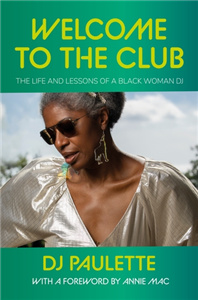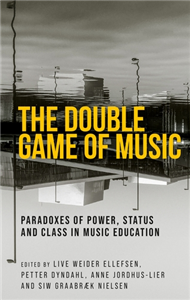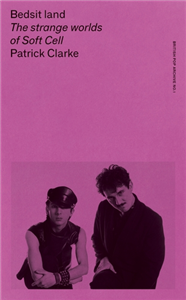Your Search Results
-
Naxos Deutschland Musik & Video Vertriebs GmbH
About Naxos licensing service As the world's leading classical music label, we can offer you an unparalleled range of repertoire for licensing. Our continuously-expanding catalogue now contains over 750,000 tracks, all of the highest artistic standard, all in state-of-the-art digital sound and many critically-acclaimed. From Early music to Opera, from Medieval to Post-Modern, from Bach to Wagner, Naxos has it. And because we own our recordings outright we can clear the right overnight without involving third parties. Are you looking for unique music for your project? We are offering a complete service from your initial concept to the finished product. Julia Brunzlow eMail: jb@naxos.de Tel.: 0171-3312975 Julia Gärtner eMail: jg@naxos.de Tel.: 08121-2500747 Web: www.naxoslicensing.com
View Rights Portal
-
Promoted ContentJanuary 2022
Mein erstes großes Tierbuch
Pappbilderbuch mit 60 Klappen zum Entdecken der Tierwelt ab 2 Jahren
by Cogumelo Club, Stefanie Böhm
Willkommen in der Welt der Tiere! Wie heißen die Jungtiere? Wer lebt in einem Nest? Welche Tiere haben ein Fell? Das und vieles mehr lernen Kinder ab zwei Jahren spielend mit einfachsten Fragen und Rätseln, vielen Klappen, lustigen Illustrationen und Fotos. • Vermittelt erstes Sachwissen • Erweitert den Wortschatz • Spielspaß mit 60 Klappen und 200 Fotos
-
Promoted ContentOctober 1999
Die Zeit läuft!
Von Uhren, Kalendern und Zukunftsmusik. Eine Kooperation mit dem Tigerenten Club
by Herausgegeben von Tigerenten Club
-
 Trusted Partner
December 1998
Trusted Partner
December 1998Freunde fürs Leben
Ein Buch zugunsten krebskranker Kinder
by Herausgegeben von Tigerenten Club
-
 Trusted Partner
January 1990
Trusted Partner
January 1990Die Herausforderung des Wachstums
Globale Industrialisierung: Hoffnung oder Gefahr? Zur Lage der Menschheit am Ende des Jahrtausends. Berichte internationaler Experten an den Club of Rome
by Club of Rome
-
 Trusted Partner
January 2005
Trusted Partner
January 2005Gendertronics
Der Körper in der elektronischen Musik
by Club Transmediale, Meike Jansen
Als die Elektronische Musik um 1950 mit der Verheißung antrat, alle physischen Begrenzungen des Musizierens hinter sich zu lassen, war dies – neben vielem anderen – auch eine prometheische Männerphantasie. Doch gebar sie in der Folge alles andere als Entkörperlichung: Über die psychedelischen Trancen der 60er, die Kraftwerk-Robotik der 70er, die Techno-Ekstasen und genderpolitischen Interventionen der 90er bis zur Laptop-Performance oder Versuchen akustischer Kriegsführung – immer neu bleibt zu verhandeln, wie die Elektronik und der Körper von wem in welcher Absicht und in welchen Kontexten verkabelt werden. Mit Beiträgen von Olaf Arndt, Mariola Brillowska, Kurt Dahlke, Diederich Diederichsen, Harald Fricke, Christoph Gurk, Tom Holert, Thomas Meinecke, Genesis P. Orridge, Eckhard Schumacher, Terre Thaemlitz u. v. a.
-
 Trusted Partner
Trusted Partner
-
 Trusted Partner
Literature & Literary StudiesNovember 2007
Trusted Partner
Literature & Literary StudiesNovember 2007Thomas Hood and nineteenth-century poetry
by Sara Lodge, Rebecca Mortimer
-
 Trusted Partner
June 2019
Trusted Partner
June 2019Schieben, Wackeln, Lachen! - Wie geht es dir? Verrat es mir!
Pappbilderbuch ab 2 Jahre
by Illustriert von Lodge, Jo; Englisch Weber, Susanne
-
 Trusted Partner
June 2019
Trusted Partner
June 2019Schieben, Wackeln, Lachen! - Der Dreck muss weg!
Pappbilderbuch ab 2 Jahre
by Illustriert von Lodge, Jo; Englisch Weber, Susanne
-
 Trusted Partner
Business, Economics & LawJanuary 2024
Trusted Partner
Business, Economics & LawJanuary 2024Welcome to the club
The life and lessons of a Black woman DJ
by DJ Paulette
In Welcome to the club, Manchester legend DJ Paulette shares the highs, lows and lessons of a thirty-year music career, with help from some famous friends. One of the Haçienda's first female DJs, Paulette has scaled the heights of the music industry, playing to crowds of thousands all around the world, and descended to the lows of being unceremoniously benched by COVID-19, with no chance of furlough and little support from the government. Here she tells her story, offering a remarkable view of the music industry from a Black woman's perspective. Behind the core values of peace, love, unity and respect, dance music is a world of exclusion, misogyny, racism and classism. But, as Paulette reveals, it is also a space bursting at the seams with powerful women. Part personal account, part call to arms, Welcome to the club exposes the exclusivity of the music industry while seeking to do justice to the often invisible women who keep the beat going.
-
 Trusted Partner
Trusted Partner
-
 Trusted Partner
The ArtsDecember 2025
Trusted Partner
The ArtsDecember 2025The double game of music
Paradoxes of power, status and class in music education
by Live Weider Ellefsen, Petter Dyndahl, Anne Jordhus-Lier, Siw Graabræk Nielsen
The double game of music imagines music education as a series of games - each with its own rules, play currency and players - to challenge readers to rethink the significance of music and musical upbringing in shaping social structures. Drawing on their own empirical research and a wide range of international contributions, the authors unravel the intertwining of social positioning and power hierarchies with players beliefs in the pure values and virtues of their games, whether these relate to parenting, children's play, schooling, academic pursuits, musical leisure activities or the television and music industries. In a world where music is often celebrated as an important tool for inclusion and democratisation, this groundbreaking book offers a timely critique, revealing complexities and contradictions that tend to be overlooked by teachers, researchers, politicians and others interested in the powers of music education.
-
 Trusted Partner
Biography & True StoriesSeptember 2024
Trusted Partner
Biography & True StoriesSeptember 2024Bedsit land
The strange worlds of Soft Cell
by Patrick Clarke
A rich and revealing examination of the legendary pop duo Soft Cell. Soft Cell are not your average pop band. Marc Almond and Dave Ball may be best known for the string of hits they released in 1981, but the powerful first phase of their collaboration embraced a staggering array of sounds, influences and innovations that would change the face of music to come. In Bedsit land, Patrick Clarke plunges into the archives and interviews more than sixty contributors, including the band members themselves, to follow Soft Cell through the many strange and sprawling worlds that shaped their extraordinary career. They lead him from the faded camp glamour of the British seaside to the dizzying thrills of the New York club scene. From transgressive student performance art to the sleaze and squalor of pre-gentrified Soho. From the glitz of British showbiz to the drug-addled chaos of post-Franco Spain. He emerges on the other side with the most in-depth, innovative and entertaining account of the duo ever written.
-
Business, Economics & LawApril 1905
The Acquisitive Society
by R.H. Tawney
This 1926 survey, written by a distinguished social and economic historian, examines the role of religion in the rise of capitalism. Arguing that material acquisitiveness is morally wrong and a corrupting social influence, the author draws upon his profound knowledge of labor and politics to show how concentrated wealth distorts economic policies. Colorful but credible, this study offers a timeless vision of alternative means toward a just economic, social, and intellectual order.
-
 Trusted Partner
2019
Trusted Partner
2019History of the Throw-Away Society
The drawback of consumption
by Wolfgang König
Sooner or later everything is thrown away. In the consumer society, however, usable and serviceable products that may be as good as new are also thrown away. Such behaviour is the result of a long-term process that has developed over a period of one-and-a-half centuries. The change was led by the USA, and the Federal Republic of Germany followed. It started at the turn of the last century with personal hygiene: articles such as toilet paper, sanitary towels, nappies and paper handkerchiefs. After the Second World War, a large number of other disposable articles were soon added, such as paper cups and plastic dishes, nylon stockings and pens, razor blades, beverage cans and much more besides. Wolfgang König shows how business and consumers have together made throwing things away perfectly normal – and discusses how the throwaway society may be overcome.
-
 Trusted Partner
Humanities & Social SciencesApril 2026
Trusted Partner
Humanities & Social SciencesApril 2026Elites in civil society
A comparative perspective
by Niklas Altermark, Malin Arvidson, Jayeon Lee, Roberto Scaramuzzino
Where civil society is often seen as a driving force for equality, this book addresses a challenging topic: civil society elites. Drawing on a comprehensive study of Italy, Poland, Sweden, and the UK, this ground-breaking research investigates the often-overlooked power structures within civil society. By combining elite studies with civil society research, the book uncovers how a distinct civil society elite emerges and how it interacts with leaders in politics and business. The findings reveal a fascinating paradox. While this elite may be a powerful engine for social change, its integration into wider power circles risks reproducing the very inequalities it seeks to dismantle. By exploring how this elite can become disconnected from its grassroots, the book provides essential insights into the future of civil society and its democratic promise.
-
 Trusted Partner
Humanities & Social SciencesJanuary 2018
Trusted Partner
Humanities & Social SciencesJanuary 2018Noble society
Five lives from twelfth-century Germany
by Jonathan R. Lyon
This book provides scholars and students alike with a set of texts that can deepen their understanding of the culture and society of the twelfth-century German kingdom. The sources translated here bring to life the activities of five noblemen and noblewomen from Rome to the Baltic coast and from the Rhine River to the Alpine valleys of Austria. To read these five sources together is to appreciate how interconnected political, military, economic, religious and spiritual interests could be for some of the leading members of medieval German society-and for the authors who wrote about them. Whether fighting for the emperor in Italy, bringing Christianity to pagans in what is today northern Poland, or founding, reforming and governing monastic communities in the heartland of the German kingdom, the subjects of these texts call attention to some of the many ways that noble life shaped the world of central medieval Europe.
-
 Trusted Partner
Humanities & Social SciencesJanuary 2013
Trusted Partner
Humanities & Social SciencesJanuary 2013Crime, Law and Society in the Later Middle Ages
by Anthony Musson, Edward Powell
This book provides an accessible collection of translated legal sources through which the exploits of criminals and developments in the English criminal justice system (c.1215-1485) can be studied. Drawing on the wealth of archival material and an array of contemporary literary texts, it guides readers towards an understanding of prevailing notions of law and justice and expectations of the law and legal institutions. Tensions are shown emerging between theoretical ideals of justice and the practical realities of administering the law during an era profoundly affected by periodic bouts of war, political in-fighting, social dislocation and economic disaster. Introductions and notes provide both the specific and wider legal, social and political contexts in addition to offering an overview of the existing secondary literature and historiographical trends. This collection affords a valuable insight into the character of medieval governance as well as revealing the complex nexus of interests, attitudes and relationships prevailing in society during the later Middle Ages.
-
Biography & True StoriesMarch 1905
Chopin: The Man and His Music
by James Huneker
Chopin: The Man and His Music reflects the intimate, thorough knowledge of Chopin's music that Huneker acquired while studying to be a concert pianist and his unusually keen insight into the character of the great Polish composer whose music he adored.
-
 Trusted Partner
Humanities & Social SciencesMarch 2017
Trusted Partner
Humanities & Social SciencesMarch 2017Science and society in southern Africa
by Saul Dubow
This collection, dealing with case studies drawn from South Africa, Zimbabwe, Mozambique and Mauritius, examines the relationship between scientific claims and practices, and the exercise of colonial power. It challenges conventional views that portray science as a detached mode of reasoning with the capacity to confer benefits in a more or less even-handed manner. That science has the potential to further the collective good is not fundamentally at issue, but science can also be seen as complicit in processes of colonial domination. Not only did science assist in bolstering aspects of colonial power and exploitation, it also possessed a significant ideological component: it offered a means of legitimating colonial authority by counter-poising Western rationality to native superstition and it served to enhance the self-image of colonial or settler elites in important respects. This innovative volume ranges broadly through topics such as statistics, medicine, eugenics, agriculture, entomology and botany.

































